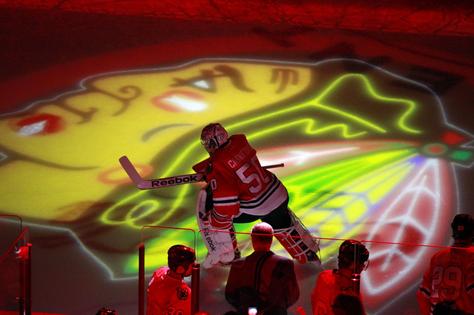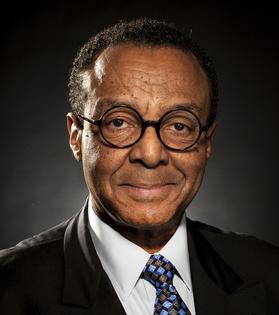Washington’s slur is an easy call, but ‘Blackhawks’ has value
Now that Washington’s NFL team has announced its “retirement” of the racial slur that has been its brand name since 1933, I am tempted to gloat a little.
I feel as if I have earned it. But I didn’t have much chance to do so before new and thornier questions rose up: What about the Chicago Blackhawks?
And the Cleveland Indians, the Atlanta Braves and the Kansas City Chiefs?
Here we go again. I put up with national mockery-by-internet-meme for the past half-dozen years for supporting Native Americans who persistently called for Dan Snyder, owner of the Washington Redskins, to dump the name.
I brought the world together, it seemed, in mockery of my position. One reader’s email in particular went viral in various versions — some more pornographic than others. He appeared at first to agree with my concern, but then not quite.
“Let’s ditch the Kansas City Chiefs, the Atlanta Braves and the Cleveland Indians,” he said in part. “If your shorts are in a wad because of the reference the name Redskins makes to skin color, then we need to get rid of the Cleveland Browns.
“The Carolina Panthers obviously were named to keep the memory of militant Blacks from the 60s alive. Gone. It’s offensive to us white folk.
“Catholics could be offended by the New Orleans Saints, the Los Angeles Angels or the San Diego Padres ...”
The list goes on. I, too, was amused — until I remembered that, alas, we’re still talking about a racial slur. To me, that sour note sets Washington’s team apart from other American Indian-related naming controversies.
Still, a 2016 Washington Post poll often cited by Snyder, found that 9 out of 10 Native Americans said they were not offended by the team name. But that was contradicted by a larger University of Michigan and University of California at Berkeley poll earlier this year. It found about half were offended by the Washington team’s name, 65% said they were offended by the “tomahawk chop” and 73% said they were offended by fans imitating Native American dances.
Dancing, despite being respectfully executed, helped force the University of Illinois’ much-beloved mascot, Chief Illiniwek, into retirement in 2007 after 80 years, although informal versions have appeared as the university makes up its mind on a new mascot. A student poll earlier this year was won by the belted kingfisher, a predatory bird that conveniently sports feathers of orange and blue, the school’s colors.
What changed? The times. These are the days of racial reckoning, touched off by the stunning death of George Floyd beneath a Minneapolis police officer’s knee. A world of historically lingering issues as varied as Confederate flags, Civil War memorials and the legacy of wars against Native Americans surfaced with a new urgency, along with corporate displeasure with brands that sound like racial slurs.
That’s where the Blackhawks and other American Indian-referencing teams come in. Compared with “Redskins,” the others clearly and fortunately are not wince-inducing racial slurs. I’m not a big hockey fan, but, as a loyal Chicagoan, I love our Blackhawks, and their mascot, unlike Chief Wahoo, dropped by the Cleveland Indians a couple of years ago, is not a goofy cartoon.
Chief Black Hawk was a real tribal leader after whom the 1832 Black Hawk War is named, a war in which such rising notables as Abraham Lincoln and future Confederacy president Jefferson Davis participated.
The Blackhawks’ first owner, Frederic McLaughlin, was commander of a World War I unit nicknamed the “Black Hawk Division,” from which he adapted his team’s name.
As NPR’s Steve Inskeep argued in an excellent essay in The Atlantic a few years ago, ”Indians are part of the American fabric, and it’s not automatically bad to include them in pop culture. The Chicago Blackhawks at least have a case to make, even if it’s one that needs to be weighed against other factors.”
But how do actual Native Americans feel about it? As mixed as polls show their views to be, they are owed the respect of having their viewpoint considered. In one indication of possibly changing views, after years of working with the Blackhawks management, Chicago’s American Indian Center has announced on its website that it will no longer have professional ties with the Blackhawks or any other organization that “perpetuates harmful stereotypes.”
“We see this as necessary,” the organization says, “to sustain a safe, welcoming environment for members of our community as well as protecting our cultural identity and traditions.”
The views of Native Americans are important, to say the least, after being ignored for much too long. Still I hope the team and Native American communities can resolve this divide without further marginalizing a history about which too many Americans know too little.
========
(E-mail Clarence Page at cpage@chicagotribune.com.)
(c) 2020 CLARENCE PAGE DISTRIBUTED BY TRIBUNE MEDIA SERVICES, INC.










